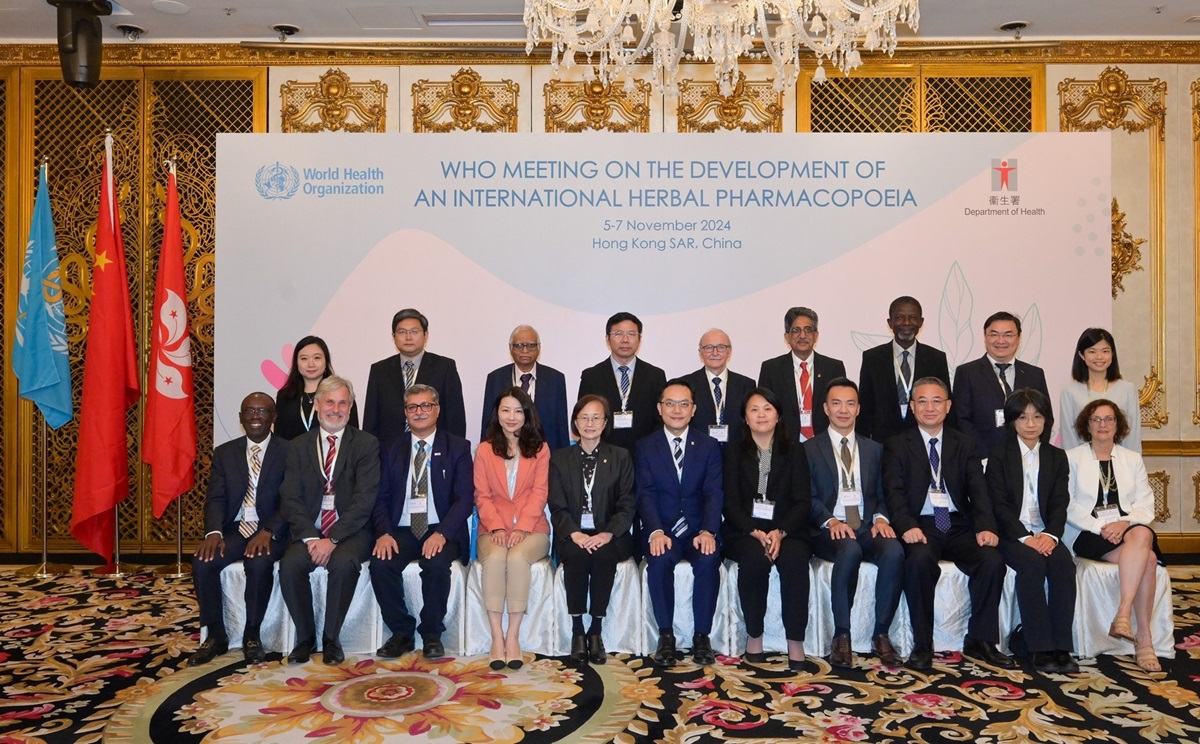
The first WHO Expert Group Meeting on the Development of an International Herbal Pharmacopoeia (IHP) was held from 5–7 November 2024 in Hong Kong Special Administrative Region (SAR), China. The meeting was attended by representatives from all World Health Organization (WHO) regions and the Director of the Department of Health of the Government of the Hong Kong SAR.
Member States have repeatedly reiterated their desire for a WHO International Herbal Pharmacopoeia (IHP) to support making quality traditional medicine interventions accessible. A pharmacopoeia is a collection of standards and quality specifications for medicines used in a country or region. Such a resource can then be used to or referenced in national legislation, helping to ensure the quality and safety of medicines within their respective jurisdictions. The WHO IHP is envisioned to foster the harmonization and convergence of available pharmacopoeial standards, increasing access to affordable, safe and quality-assured herbs.
In the wake of the COVID-19 pandemic, there has been an increased need to explore potential interventions in traditional medicine systems as either adjuvant or stand-alone therapies to alleviate human ailments. During the Istanbul meeting of the International Regulatory Cooperation for Herbal Medicines in April 2024 and the International Conference of Drug Regulatory Authorities in New Delhi in October 2024, Member States reiterated the necessity of formulating the IHP.
Dr Ronald Lam, Director of Health of Hong Kong SAR, commended WHO’s initiative to create a pharmacopoeial accord for herb standards, which would guide Member States in enhancing the quality of traditional medicine products. He pledged his full support for this important scientific initiative.
Dr Rudi Eggers, WHO Director of Integrated Health Services, emphasized the need for a WHO IHP to assist Member States in ensuring the quality of traditional medicine raw materials and, consequently, traditional medicine products. He explained that the IHP, like the WHO International Pharmacopoeia, is designed to offer international recommendations, which are especially beneficial for countries that lack established standards.
Dr Sungchol Kim, WHO’s Unit Head of Traditional, Complementary, and Integrative Medicine Unit, outlined the multi-phased approach to developing the WHO IHP and thanked Hong Kong’s Department of Health and its Government Chinese Medicines Testing Institute for their contributions to advancing traditional medicine research and quality assurance. He stated, “Our shared goal is to harmonize quality standards while respecting the unique herbal traditions of each Member State.”
The agenda for the three-day meeting focused on discussions regarding the roadmap, scope and structural framework of the WHO IHP. Experts, including representatives from established pharmacopoeias such as the Chinese Pharmacopoeia, European Pharmacopoeia, Ayurvedic Pharmacopoeia of India, Japanese Pharmacopoeia and United States Pharmacopoeia etc., shared their expertise to help shape a unified global standard.
In the next phase, an expert group and technical task force will be formed under the Strategic Technical Advisory Group for Traditional, Complementary, and Integrative Medicine to support the development of the WHO IHP. Through the IHP, WHO aims to support the health needs of diverse populations and create new opportunities for integrated, sustainable healthcare systems.
Related
Traditional, Complementary and Integrative Medicine (TCI)
